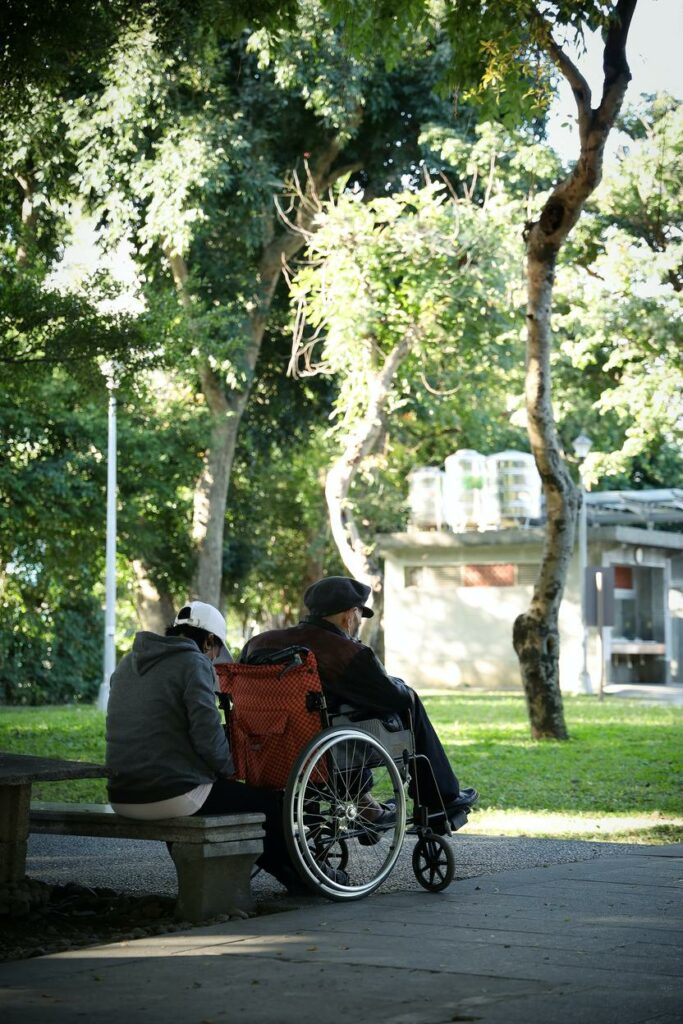 A disability accommodation is a fundamental alteration to a normal job or employment environment that allows a disabled person or a person with spinal cord injuries in Sydney to do their regular job tasks. Typically, there are three kinds of disability accommodation: short term respite care accommodation, supports designed to assist a disabled person in accomplishing their job responsibilities, and permanent disability accommodations that ensure a person are able to do their job even when they are no longer fit physically. In most cases, a person can use a short term accommodation & disabled holidays in Sydney for a temporary period of time, like a week or two, to help them gain back some of their mobility. The most common short-term disability accommodation Sydney types include accessing public facilities like libraries, shops, and offices, and taking prescribed medication. If a disabled person is unable to make these types of changes to their workplace, they may need to look into getting support services to address their needs.
A disability accommodation is a fundamental alteration to a normal job or employment environment that allows a disabled person or a person with spinal cord injuries in Sydney to do their regular job tasks. Typically, there are three kinds of disability accommodation: short term respite care accommodation, supports designed to assist a disabled person in accomplishing their job responsibilities, and permanent disability accommodations that ensure a person are able to do their job even when they are no longer fit physically. In most cases, a person can use a short term accommodation & disabled holidays in Sydney for a temporary period of time, like a week or two, to help them gain back some of their mobility. The most common short-term disability accommodation Sydney types include accessing public facilities like libraries, shops, and offices, and taking prescribed medication. If a disabled person is unable to make these types of changes to their workplace, they may need to look into getting support services to address their needs.
Unfair dismissal laws protect employees from being unfairly disadvantaged by companies with special needs or qualifications. Disabilities may include physical or mental handicaps, developmental disabilities, and identifiable learning problems. As employers, it is important to understand whether an applicant qualifies for undue dismissals, or if they are entitled to compensation for their past workplace experience. If an employee feels they were unfairly selected for a particular position, they should take their complaint to an Employment Tribunal to determine if they qualify for undue dismissal. The tribunal’s decision is final, and employers are not allowed to select applicants based on their disability status.
Once an employee has made a claim for unfair dismissal, they should ensure their supervisor obtains all of the necessary documentation to support their case. A disability accommodation is not the same as a sick leave. Employees should not expect a job back in the day they are released from hospital. This is because an employer does not have to provide sick pay, disability accommodation or disability insurance. Instead, the employee will have to complete a Workmate Compensation Certificate, indicating that their illness prevented them from working.
In order to find an employee suitable for NDIS specialist disability accommodation in Sydney, an employer needs to first assess their current work environment. This assessment requires both an on-site survey of the working environment, as well as data on the activities performed by each employee and supervisors. Assessments should include details on the layout of the work environment, and the duties required by each employee in their role. The results of the assessment should be interpreted and analyzed to provide a reasonable accommodation for the applicant. The results of the survey will provide information about the most common reasons for missing work, as well as the most common reasons for completing work successfully, providing the employer with an idea of their employees’ abilities and habits.
When assessing a workplace, an employer should also consider several other factors, including the skills of employees, the supervisor’s knowledge of the applicants’ particular disability and the skills, experience and personality of the applicants. Using appropriate equipment may also prove to be of benefit to employers. By using appropriate equipment, the ability of employees to perform tasks will be improved, as well as their safety. An employee questionnaire may be prepared to assess the abilities of the employees. The questionnaire should also include information about the supervisor’s understanding of the requirements of the Disability Discrimination Act. Once an assessment has been made, a reasonable accommodation policy can be designed and implemented.
The next step for an employer is to implement a reasonable accommodation policy. This policy should include details about the types of changes to be made to the work environment, and how employees can make requests for adjustments to these changes. As soon as practicable after being advised of an employee’s disability, an employer should make necessary adjustments to ensure equality of access to work. For example, if there are people who are unable to use the toilet at the same time as others, or if two or more people are sharing the toilet at the same time, the employer should accommodate these needs so that they are able to use the toilet. The same principle should be applied to adjustments to the work environment, such as adjustments to the layout of equipment, the provision of extra safety measures and provision of more accessible materials.
A disability accommodation policy may also include details relating to how the supervisor or HR representative may contact the employers with questions that an employee may have. A good policy should make clear that the supervisor or the HR representative can make requests for adjustments to be made to the accommodation policy as long as they are notified in advance and provided with information relating to the request and the justification for it. This should ensure that the supervisor or the HR representative can deal with requests for alterations promptly and competently.
The Disability Discrimination Act provides protection in terms of the reasonable accommodations that employees need to make when they face a situation where they could require temporary or permanent changes to their work or living environment. Employees who experience prolonged and recurring disabilities that interfere with performing their duties face a greater risk of losing their jobs. This is particularly the case where the disability keeps the employee from leading a productive lifestyle. This is why it is important for businesses to provide reasonable accommodations to employees who are in need of such accommodations. When disability accommodation is provided, the employee is given a chance to return to work and to contribute to the growth and development of the business.

